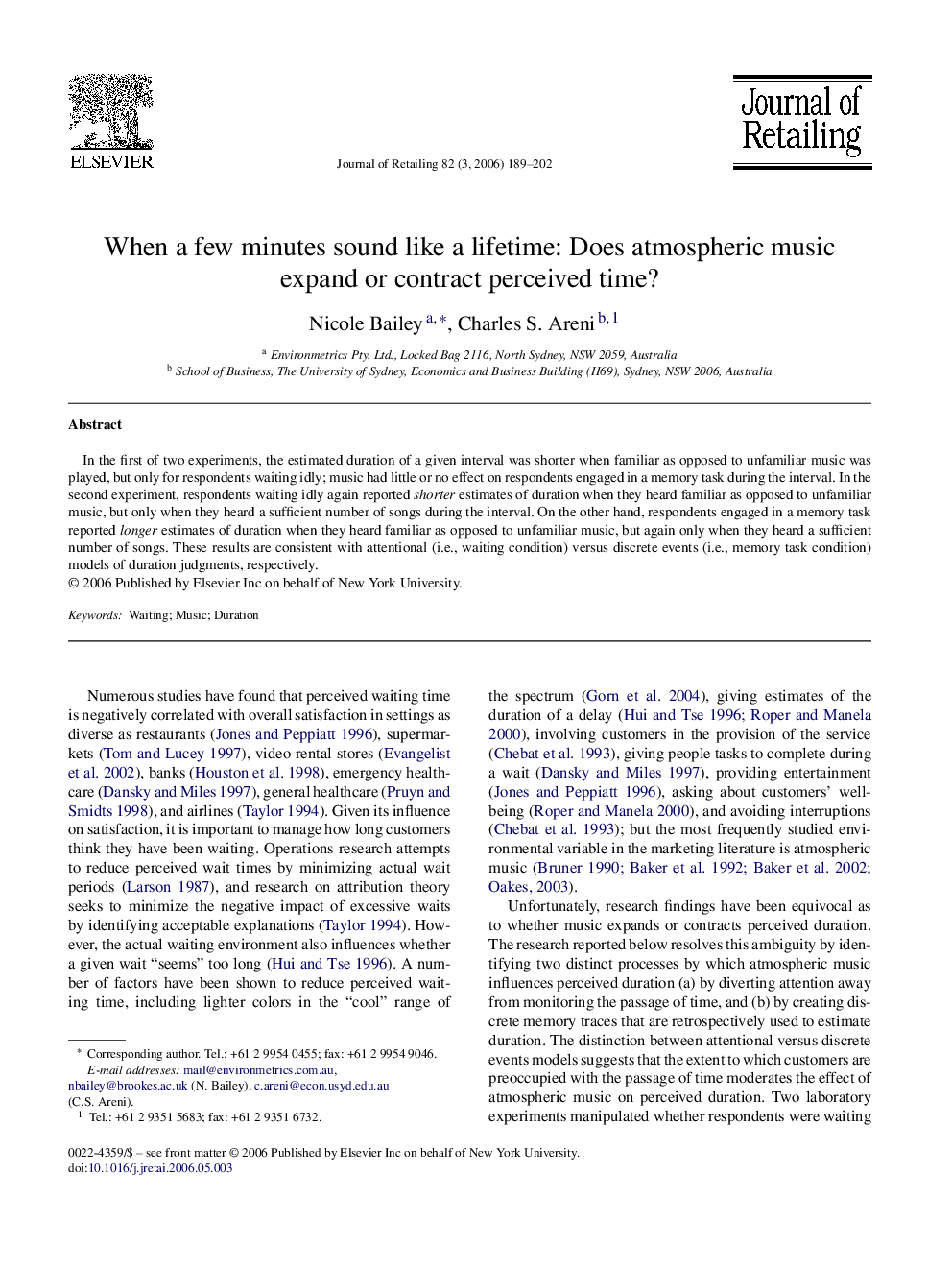| Article ID | Journal | Published Year | Pages | File Type |
|---|---|---|---|---|
| 886689 | Journal of Retailing | 2006 | 14 Pages |
In the first of two experiments, the estimated duration of a given interval was shorter when familiar as opposed to unfamiliar music was played, but only for respondents waiting idly; music had little or no effect on respondents engaged in a memory task during the interval. In the second experiment, respondents waiting idly again reported shorter estimates of duration when they heard familiar as opposed to unfamiliar music, but only when they heard a sufficient number of songs during the interval. On the other hand, respondents engaged in a memory task reported longer estimates of duration when they heard familiar as opposed to unfamiliar music, but again only when they heard a sufficient number of songs. These results are consistent with attentional (i.e., waiting condition) versus discrete events (i.e., memory task condition) models of duration judgments, respectively.
